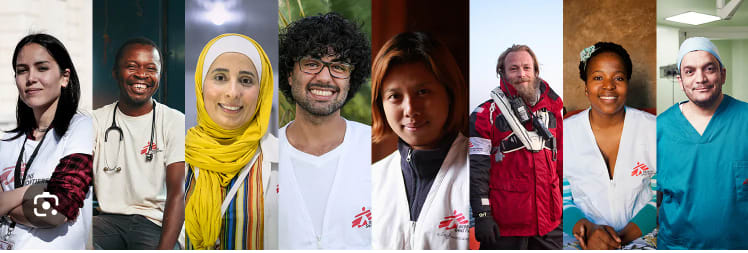International Mobile Staff Recruitment
MENA Amman Office
Morocco - Algeria - Tunisia - Libya - Palestine - Jordan

MENA Amman Office
Morocco - Algeria - Tunisia - Libya - Palestine - Jordan
It is best to allow for as much time as possible before you are available go to the field. You should leave at least 2 months for recruitment; sometimes it will be longer and sometimes shorter. If your circumstances change after you have applied, you can change your availability date but it is better not to delay it too long after you have been recruited. Time between recruitment to departure is difficult to say, and varies from a few weeks to several months depending on your profile, availability, and the HR needs of our operational activities.
The usual length of an assignment is between 9 and 12 months. Surgeons, anesthesiologists, and obstetricians may serve for a period of six weeks or more. However, the important thing is to view working for MSF as a long term commitment with a minimum of 3-5 year perspective.
Candidates must be able to speak and write in English fluently. However, speaking other languages such as French specifically, but also Spanish, Portuguese, Russian, Arabic is highly beneficial.
Depending on relevant previous experience, monthly MSF salary for Level 1 positions is 1633 EUR, for Level 2 it is 1883 EUR.
MSF salaries reflect the humanitarian spirit of volunteerism, while recognizing the high levels of professional skill of our field staff. Increases are based on expertise and experience. MSF offers the opportunity to attend trainings and workshops, organized internally or externally, relating to specific career development or individual growth.
What is included?
1. Round trip economy air travel
2. Accommodation and transportation during your contract (including briefings and debriefings)
3. Monthly indemnity based on your experience and MSF salary structure
4. Field Per diem allowance in local currency based on the cost of living in project country
5. Insurance covering health, luggage, professional liability, repatriation, accidents and flights
6. Pre and post mission health checks
Staff are responsible for personal expenses such as the purchase of souvenirs and developing photos and for their own holiday arrangements during and after their contract.
You will be contracted through our International Contracting Office in Geneva. MSF contributes 7% of the salary towards the retirement savings plan. There is no tax deduction from MSF – it is your own responsibility to report to relevant authorities. While on assignment, there is typically 1 week of vacation after 3 months.
No. All posts for first-time assignments are unaccompanied. Living conditions in the field and security concerns make it impossible for family members to accompany an IMS. Most mission locations do not allow for friends or family members to visit staff. Accompanied posts may be offered to coordination staff, depending on field conditions and requirements.
All staff must be aware of the risks and dangers of serving with MSF in the field. However, MSF maintains insurance coverage on behalf of its staff that provide direct benefits to injured or sick staff (including appropriate care and, if necessary, repatriation) or their beneficiaries.
MSF works in conflict areas and insecure environments but MSF maintains extensive risk-management procedures and security guidelines for every assignment. Staff are briefed on the country security situation before going to the field, and upon arriving at the project site are given specific security protocols. Adherence to our field guidelines for personal and team conduct and safety is not negotiable.
MSF has no prescribed limit, physical condition is more important than age. As living conditions in the field can be basic, staff do need to have the physical and mental fitness to cope with the demanding conditions that may be encountered on a field mission. Some MSF sections have age limitations due to insurance rules.
No. MSF places staff on assignment based on the needs in the field. MSF asks all staff to be flexible and willing to serve where they are needed most. However, special skills and/or restrictions are taken into consideration in each placement. Once a position is offered, the final decision to accept a post is made by the staff.
Coordination positions are usually filled by experienced MSF staff. Occasionally MSF does recruit Medical, Project and Logistic coordinators. Successful applicants for these positions will have extensive field experience, in a coordination role, with another NGO that carries out similar work to that of MSF, and has similar values. If you feel you have the experience and ability to work as part of a senior management team in the field please contact the HR department.
No, the conditions encountered on field missions demand the full attention of the teams. They do not have the time to supervise, monitor and assess trainees and students. Locally hired staff fills all auxiliary positions.
Besides the practical considerations, there are many intangible benefits. Working for MSF is a challenging and rewarding personal and professional experience that allows you to help people in a very real way. MSF encourages field workers to continue working for the organisation beyond their first mission, and we offer various career opportunities to our field workers. Gaining more and varied MSF field experience makes you eligible for coordination positions in the mission such as logistical, medical, or project coordinator, or head of mission.